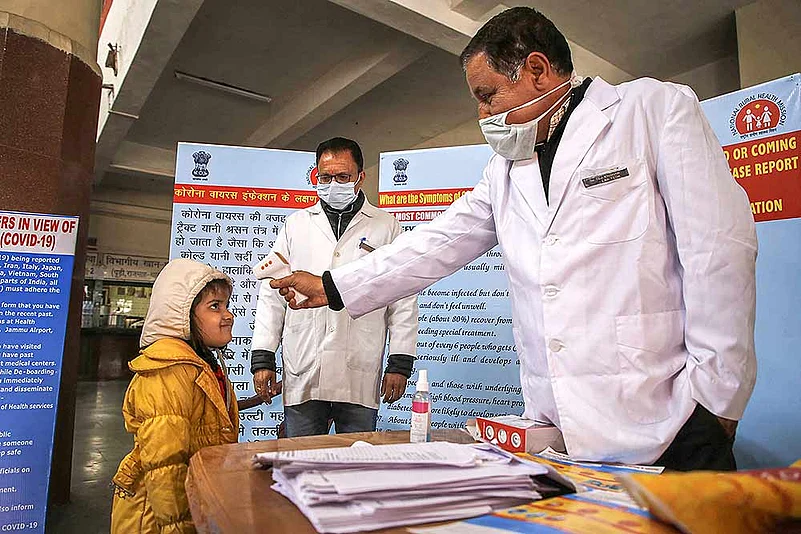As the Kashmir Valley is witnessing aggressive campaign from the government and medicos to tackle the novel coronavirus or Covid-19 outbreak, doctors are asking people not to visit hospitals unless necessary.
Since the 1990, Kashmiris have been thronging to hospitals to donate blood and help people who would suffer bullet or pellet injuries during protests. But doctors are telling them that the present crisis is different and it needs an altogether different response.
“For last many decades now hospitals in Kashmir have been perceived beyond healthcare structures as spaces of internal and external security. People in all kinds of crisis personnel or collective will rush to the nearest hospital for peace of mind and body,” said Dr. Arshid Hussain, professor in the department of Psychiatry at the Government Medical College Srinagar.
Advertisement
But the current pandemic, he said, is the time to restraint from going to hospitals.
“People shouldn’t visit hospital or private clinics for minor ailments, social visits, avoidable follow ups. They shouldn’t make long distance travels for what could be addressed at primary care,” Dr Hussain said.
“We, on our part in hospitals, could make phone numbers public for all our follow up patients and this will guide patients about their current treatments so that unnecessary long distance visits are avoided,” he said.
Dr Muhammad Salim Khan, Professor and head of the department of preventive and community medicine at the government medical college in Srinagar, said people should avoid visiting hospitals unless it is very necessary.
Advertisement
“We are very social and if any patient is admitted in the hospital, scores his near and far off relatives and others come to see him or her. I think these are times this has to be avoided. Hospitals must be left for the sick this time,” said Dr. Khan.
Meanwhile, Jammu and Kashmir government is keeping watch on 72 persons who had returned from Iran in February, senior officials said. They said these 72 people are about to complete their home quarantine in next few days.
“We also took samples from many of them and they tested negative,” said Dr. Shafqat Khan, Nodal Officer for Covid-19 in Jammu and Kashmir.
Dr. S M Qadri from directorate of health service Kashmir said some of people, who had returned from Iran, reported themselves to the health authorities while others were traced through a list provided by the Union Ministry of Civil Aviation.
“In fact, in some cases we could only find names and address of their locality. We sent a team to locate them. They were home quarantined,” Qadri said.
He said rapid response team of the health department was in every district of the Valley. He added that these 72 people had returned to Kashmir in the first and second weeks of February. After they completed home quarantine of 14 days they were put under surveillance. “We call them every day and at times sent teams to monitor them,” he said.
Advertisement
Of 72 persons who had returned from Iran in February, 32 are from Budgam, 16 from Baramulla, 22 from Srinagar, one from Anantnag and one from Bandipora. Those who had symptom, are to be kept in isolation ward.
Dr. Khan on Tuesday interacted with a person who on March 4 was admitted in an isolation facility at Jammu. The person had returned from South Korea.
“I went to the isolation ward and asked him about his well-being. He looked fine even though he has tested positive,” Dr. Khan said.
Deputy Commissioner, Srinagar, Dr Shahid Iqbal Choudhary said 615 rooms have been made available in 11 buildings at different areas of the Valley to quarantine incoming travellers affected countries.
Advertisement
Of the 615 rooms, 76 are in Budgam, 105 in Baramulla, 45 in Bandipora, 70 in General, 74 in Kupwara, 73 in Pulwama, 104 in Anantnag, 41 in Kulgam and 26 beds in Shopian district.




















